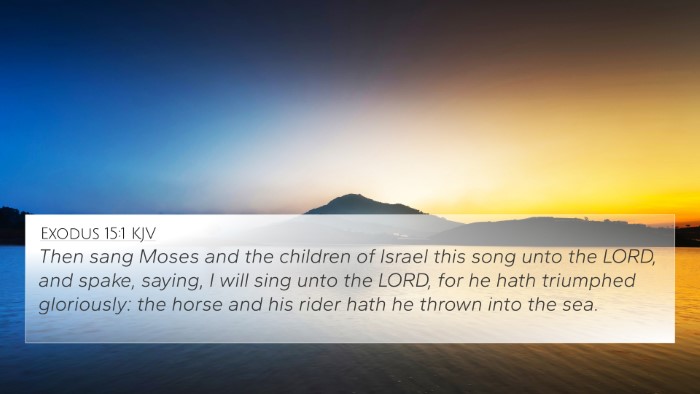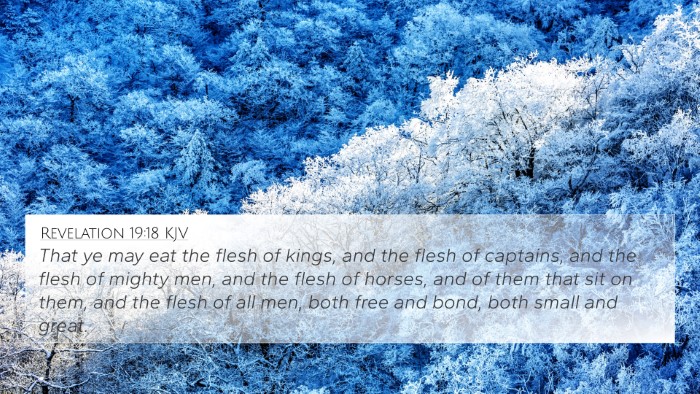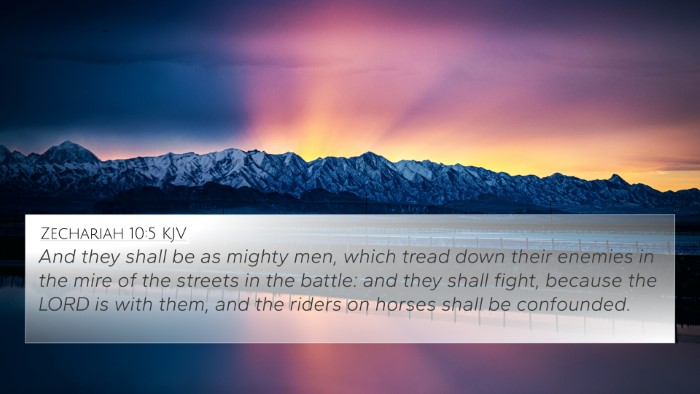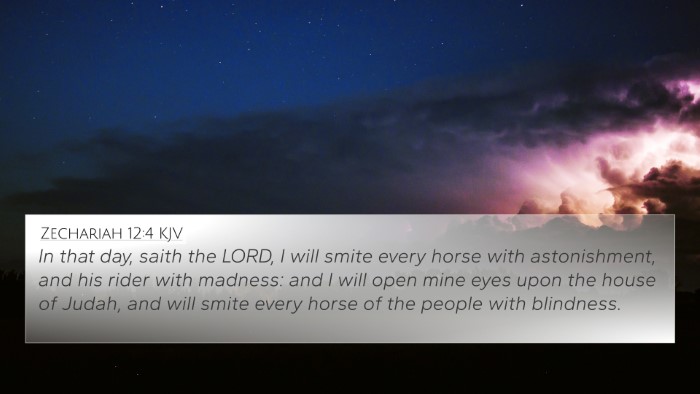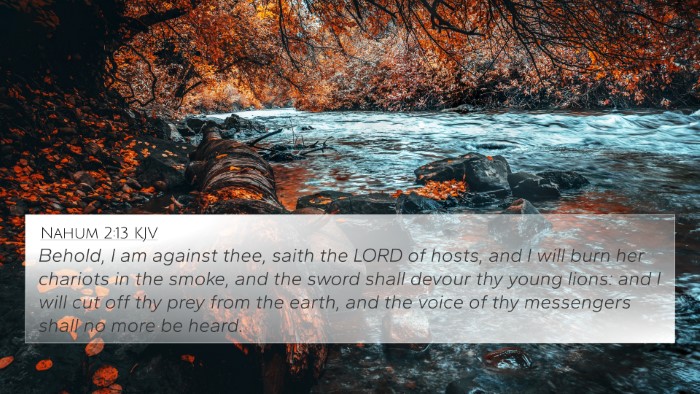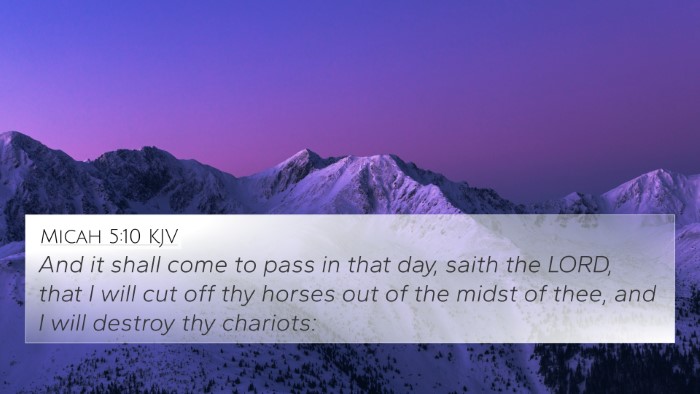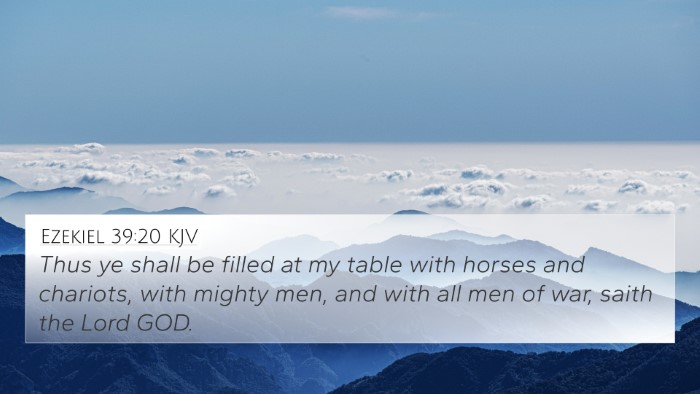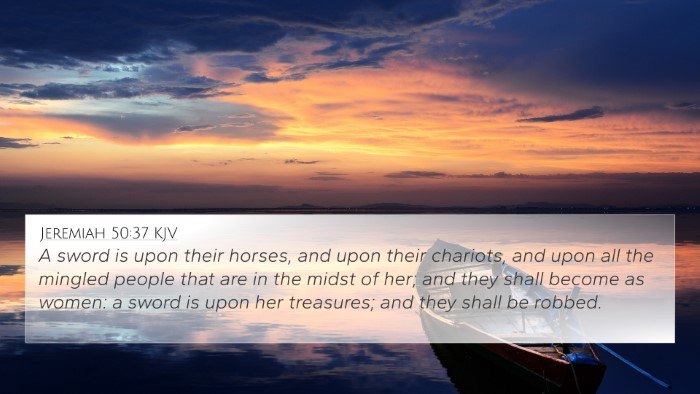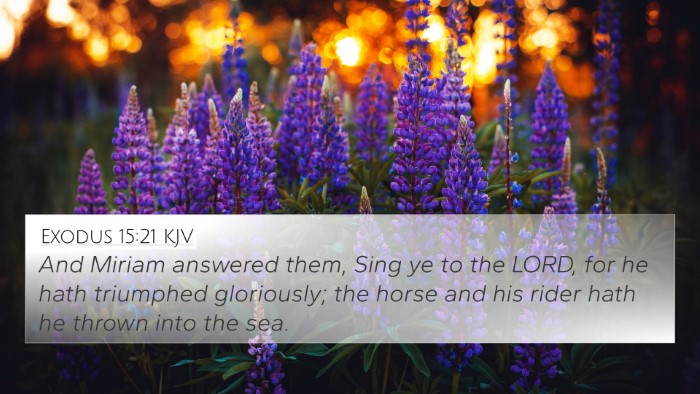Understanding Jeremiah 51:21
In Jeremiah 51:21, the prophet Jeremiah conveys a powerful message about destruction and divine judgment. The verse states:
"And with thee will I break in pieces the shepherd and his flock; and with thee will I break in pieces the husbandman and his yoke of oxen; and with thee will I break in pieces captains and rulers."
This passage is rich in meaning and offers profound implications about God's sovereignty over nations and leaders. Below, we explore its interpretation through the lens of several public domain commentaries.
Detailed Analysis from Public Domain Commentaries
Matthew Henry's Commentary
Matthew Henry emphasizes the comprehensive nature of God's judgment in this verse. He notes that the breaking in pieces signifies total destruction and the incapacity of earthly leaders to withstand divine wrath. The shepherd symbolizes rulers guiding their people, while the husbandman represents those engaged in labor and cultivation. Henry points out that no one—neither the powerful nor the humble—is exempt from God's judgment when it comes upon a nation.
Albert Barnes' Notes on the Bible
Albert Barnes provides insights into the imagery used in this verse. He describes the metaphor of breaking in pieces as indicative of a total overhaul of leadership and social structure. The shepherd and his flock represent the relationship between leaders and followers, while the yoke of oxen signifies the burdens borne by the populace. Barnes stresses that God's sovereignty is depicted in the destruction of both the mighty and the lowly as part of His greater plan for justice and order.
Adam Clarke's Commentary
Adam Clarke expands on the theological implications of the verse. He interprets the breaking of the shepherd, husbandman, and rulers as a symbolic act of divine retribution against those who have led others astray or have been complicit in injustice. Clarke suggests that this serves as a warning to all leaders regarding their responsibilities and the consequences they may face should they fail to uphold righteousness in their guidance.
Connections and Cross-References
Jeremiah 51:21 draws thematic ties to various other scriptures. Below are key related verses that enhance our understanding:
- Isaiah 10:15: "Shall the axe boast itself against him who chops with it?" - emphasizes God's sovereignty over instruments of judgment.
- Ezekiel 34:10: "Thus says the Lord God: Behold, I am against the shepherds..." - a direct correlation to the theme of God's judgment on leaders.
- Micah 5:14: "And I will pluck up your groves out of the midst of you..." - destruction of pagan practices and those leading them.
- Lamentations 2:14: "Thy prophets have seen vain and foolish things for thee..." - speaks to the failure of leaders to guide wisely.
- Zechariah 11:17: "Woe to the idol shepherd that leaveth the flock!" - condemnation of shepherds failing their duties.
- Revelation 19:15: "And out of his mouth goeth a sharp sword..." - the power of God's word in judgment.
- Matthew 24:45: "Who then is a faithful and wise servant..." - emphasizes the importance of faithful leadership.
Lessons and Applications
This verse serves to remind us of several key lessons and applications within a contemporary context:
- Accountability of Leadership: Those in positions of authority must recognize their responsibility before God.
- Divine Judgment: God's judgment is both inevitable and impartial, affecting all layers of society.
- The Role of Justice: Governance must be rooted in justice and righteousness.
- Importance of Spiritual Awareness: Leaders must remain spiritually vigilant in guiding their people.
- Hope in Restoration: Though judgment is pronounced, God’s ultimate plan includes restoration for His people.
Thematic Bible Verse Connections
In regard to the broader themes within Scriptures, Jeremiah 51:21 prompts a comparative analysis with many other Biblical verses. Here are some ways to explore these connections through cross-referencing:
- Explore the role of leadership: Analyze passages regarding the qualities and failings of leaders (1 Samuel 15:23, Proverbs 16:12).
- Investigate the theme of judgment: Cross-reference judgment themes with passages such as Romans 2:6 and 2 Corinthians 5:10.
- Uncover covenant relationships: Examine the link between leadership and covenant responsibilities in Deuteronomy 29:9-15.
- Examine the balance of justice and mercy: Study how justice and mercy interact across various testaments, such as Micah 6:8.
Tools for Bible Cross-Referencing
For deeper study and understanding of the connections between Bible verses, various tools and methodologies exist.
- Bible Concordance: A great resource for locating words and their occurrences in Scripture.
- Commentaries: Several accessible commentaries offer insights into cross-references and thematic links.
- Bible Cross-Reference Guide: Utilize guides that outline detailed connections between verses.
Conclusion
Jeremiah 51:21 provides a rich landscape for theological reflection and practical application. By examining this verse alongside various cross-references, believers can attain a deeper understanding of God’s nature and His expectations for leadership. The judgment depicted serves as both a warning and a reminder of the ultimate sovereignty of God over all nations and leaders.



